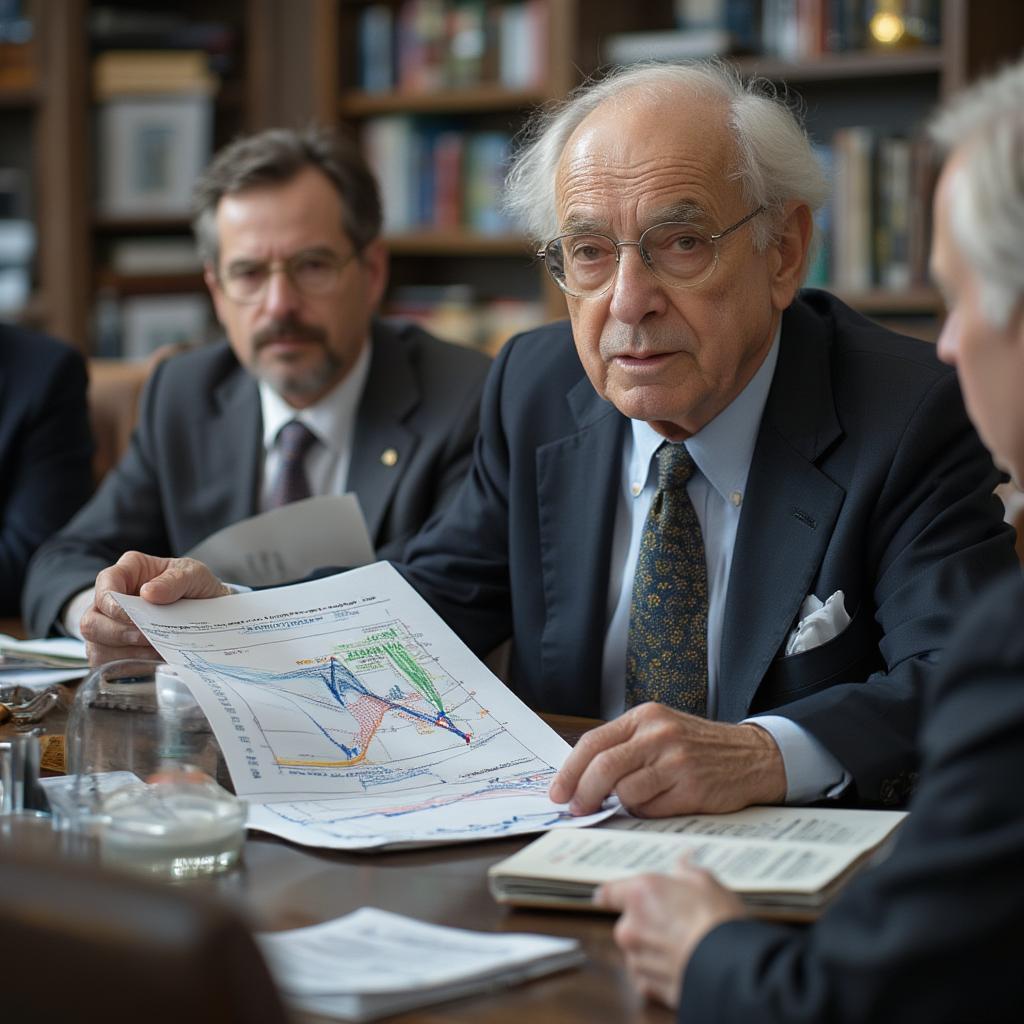Milton Friedman, a name synonymous with free-market capitalism, remains one of the most influential economists of the 20th century. His groundbreaking ideas challenged conventional economic wisdom and reshaped policy debates for decades. This biography explores Friedman’s intellectual journey, highlighting his significant achievements and enduring legacy.
Born in 1912 in Brooklyn, New York, to immigrant parents, Friedman’s early life was marked by modest means and a strong emphasis on education. He excelled academically, earning scholarships to Rutgers University and later a master’s degree from the University of Chicago. His doctoral studies at Columbia University further solidified his passion for economics. Friedman’s career trajectory took him from government service during World War II to academia, where he became a prominent figure at the University of Chicago, shaping the renowned “Chicago School” of economics. It was here that he honed his free-market philosophy, challenging Keynesian economics, the dominant theory of the time.
Friedman’s most impactful contribution was his unwavering advocacy for free markets and limited government intervention. His seminal work, Capitalism and Freedom (1962), laid out his vision for a society where individual liberty and economic freedom were paramount. He argued that government intervention often had unintended negative consequences, hindering economic growth and individual prosperity. He championed policies such as school choice, deregulation, and a stable monetary policy. His work on consumption analysis, which challenged Keynesian theories, earned him international recognition and laid the foundation for his later work on monetary policy.
Friedman’s influence extended beyond academia. He served as an advisor to several U.S. presidents, including Ronald Reagan, and his ideas played a crucial role in shaping economic policy in the United States and globally during the 1980s. His advocacy for free markets and deregulation resonated with political leaders seeking solutions to stagflation, the combination of high inflation and slow economic growth that plagued the 1970s. His work on monetary policy, particularly his emphasis on controlling the money supply to curb inflation, proved highly influential in shaping central banking practices. He challenged the prevailing Keynesian focus on fiscal policy and argued that controlling inflation was the primary responsibility of central banks.
His work A Monetary History of the United States, 1867–1960, co-authored with Anna Schwartz, argued that the Great Depression was exacerbated by the Federal Reserve’s failure to prevent a contraction of the money supply. This research fundamentally altered how economists and policymakers viewed the role of monetary policy in macroeconomic stability.
 Milton Friedman discussing monetary policy
Milton Friedman discussing monetary policy
Friedman’s intellectual legacy continues to shape economic discourse today. His ideas have had a profound impact on everything from tax policy to monetary policy to deregulation. While his theories have been subject to debate and criticism, his contributions to economic thought remain undeniable. His work continues to inspire economists and policymakers to consider the importance of free markets, individual liberty, and the potential unintended consequences of government intervention.
Friedman’s emphasis on individual freedom and responsibility also extended to his views on social issues. He advocated for school choice, arguing that competition would improve educational outcomes. He also supported drug legalization, believing that prohibition was ineffective and harmful. These positions, while sometimes controversial, reflected his consistent commitment to individual liberty and limited government control. His belief in the power of individual choice and the free market to address social issues remains a significant part of his intellectual legacy.


